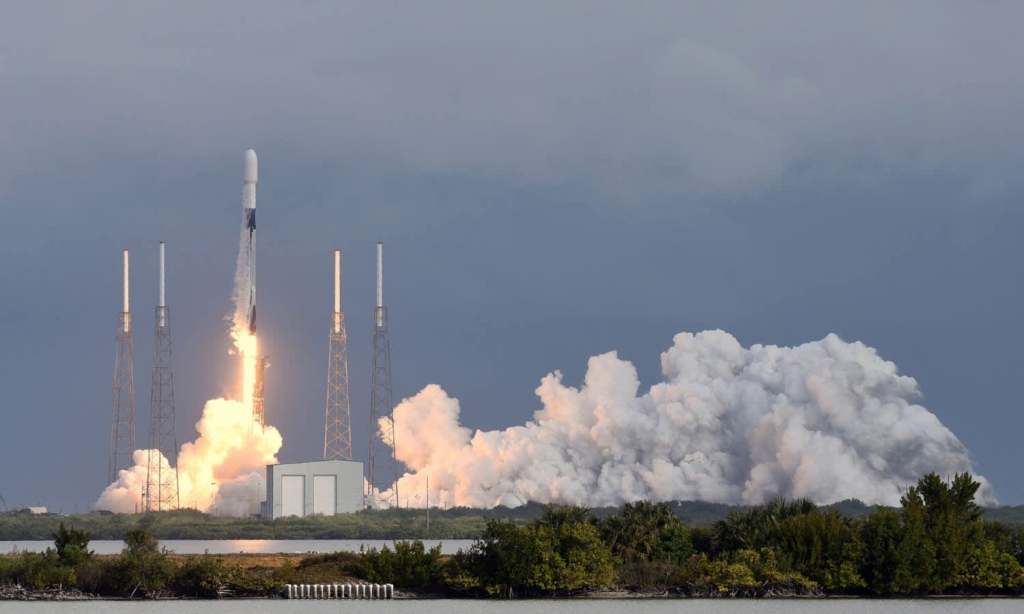Yesterday, a SpaceX Falcon 9 rocket carried 143 satellites into orbit, on a packed-out rideshare mission, setting a new world record for the most satellites launched by a single rocket.
So let’s catch you up. SpaceX was founded by Elon Musk (of course) in 2002, with a goal to reduce space transportation costs and enable the colonisation of Mars. NBD.
From creating the first privately funded, liquid-fuelled rocket to reach orbit, to being the first private company to send humans to the International Space Station, to now breaking a world record, it’s safe to say that SpaceX operates in a world of its own… literally.
Sunday’s mission, named Transporter-1, carried 10 satellites for Space X’s Starlink internet network, which once it becomes fully operational, will be able to offer internet access from virtually anywhere on Earth. There were over 130 other satellites on board, belonging to a mixed bag of high-rolling customers including Planet, which operates a constellation of Earth-imaging satellites and ICEYE, which develops small radar satellites for tracking floods and monitoring ice.
Previously, the record for most satellites sent to space in one trip was transported by PSLV, an Indian rocket, carrying 104 satellites in 2017.
In 2019, SpaceX announced their SmallSat rideshare program, providing access to space for small satellite operators – or ‘smallsats’ – seeking a reliable, affordable ride to orbit.
With Sunday’s mission marking the first rideshare and being a world record success, it’s almost scary to think of the speed at which Musk’s power will continue to grow.
Arguably, the rideshare program is a perfect excuse to regularly launch Starlink satellites, inching closer and closer to the over global broadband internet takeover. As a $10 million investment, it is estimated to generate $30 billion annually, to help fund Musk’s interplanetary rocket program; Starship.
Are we living in an episode of Silversun, or is it just me?







